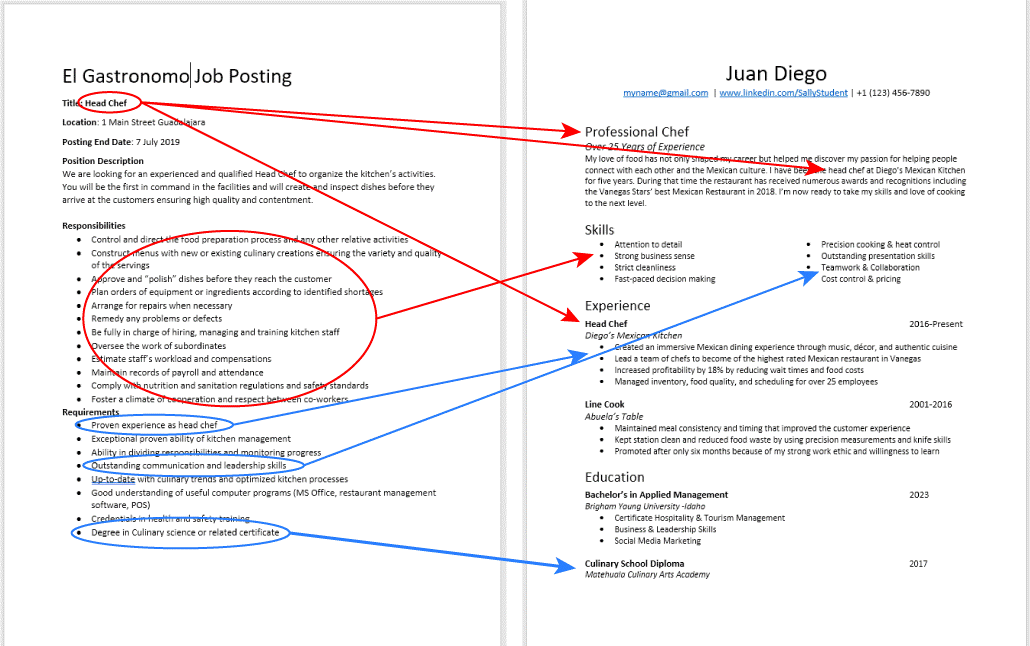Résumé
Skills Section
After the headline and the summary, the next place recruiters look is the skills area. An effective skills section uses keywords and phrases from the job posting so that it is easy for a recruiter to match the job to the applicant. To illustrate, let’s examine the following job posting that Juan is applying to see how it matches to his résumé.

It may be difficult to read, but Juan has used keywords from the job posting to highlight his qualifications for the job. The red arrows show that he has the skills they are looking for. The blue arrows show that he meets their minimum qualifications. If your job posting lists minimum job requirements, it is important to make them easy to find on your résumé because recruiters will look for those to decide if they should keep reading your résumé.
While the skills section may at first feel less important than the other sections, it is important to not brush it off. As résumé expert Kim Isaacs explains, “If you treat this section as an afterthought, you could be missing an opportunity to show employers you’ve got the right skills for the job” (Marketable Skills to Put in Your Résumé Skills Section).
So, how many skills should you list? Isaacs suggests that you list somewhere between 10–15 skills to remain competitive. You may not need 15 skills, but you need enough for this section to stand on its own. If you only list a few skills, the shortness of the list will make it seem like you don’t have the skills necessary to do the job. On the other hand, if your list is too long, it will feel unfocused. The skills area is a great place to pack in the keywords that don’t naturally fit into the other parts of your résumé to help you show up in search results.
The first half of your résumé (headline, summary, and skills) is the part of your résumé where you want to do the most customizing so that the recruiter knows you’re specifically applying to their job. By the time a recruiter has scanned this part of your résumé, they will know if you're a good fit for their position.
Ponder and Record
Before you start writing your own resume, take the time to brainstorm what value you could bring to a potential employer. If there is a job you are interested in applying for, study the posting and record your answers to the following questions:
- What key terms, phrases, and employer values are listed in your job posting?
- What skills do you have? What experience have you had?
- What attributes or qualities do you have that your potential employer would value? How could your skills and experience be valuable to your employer?